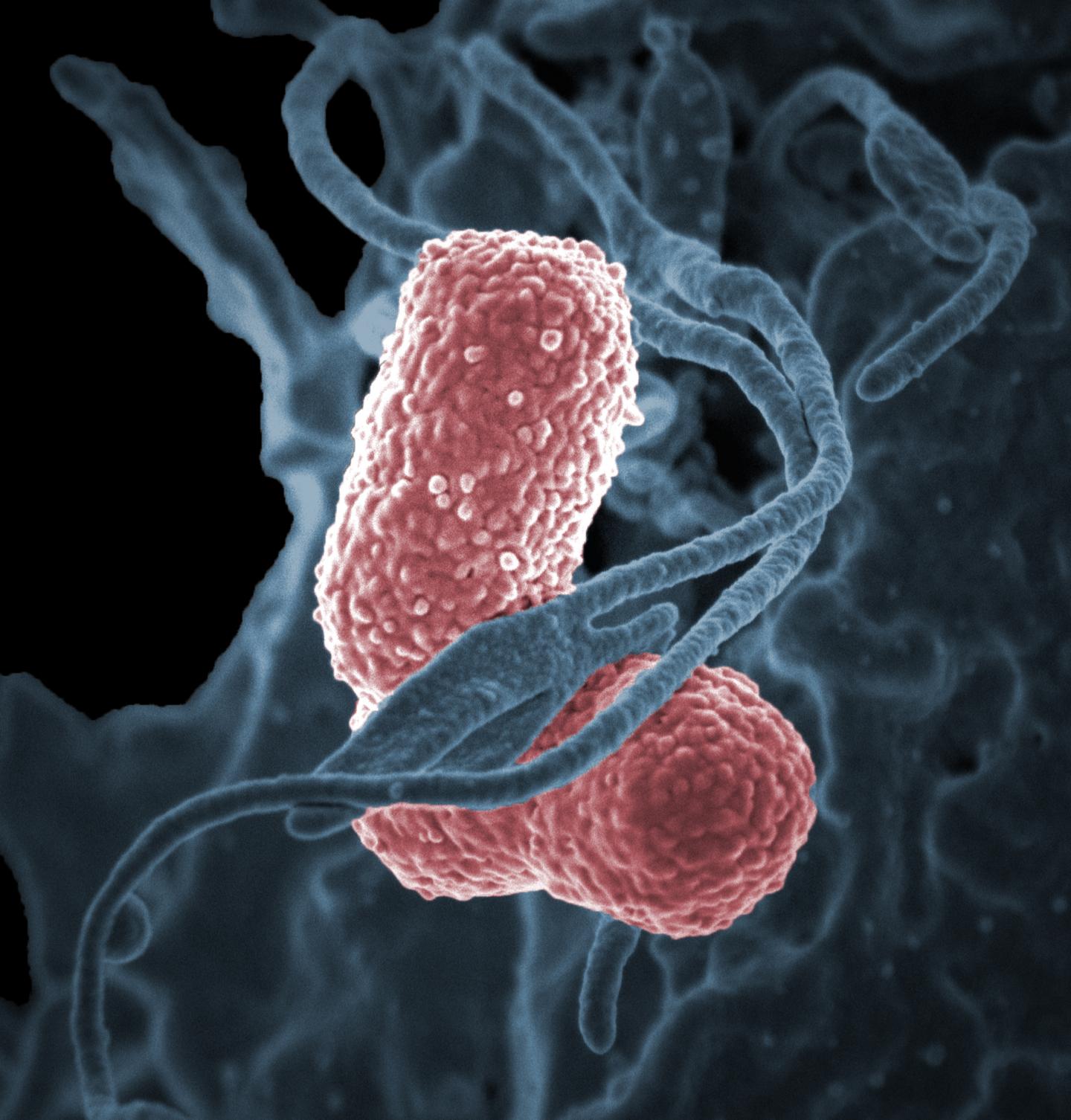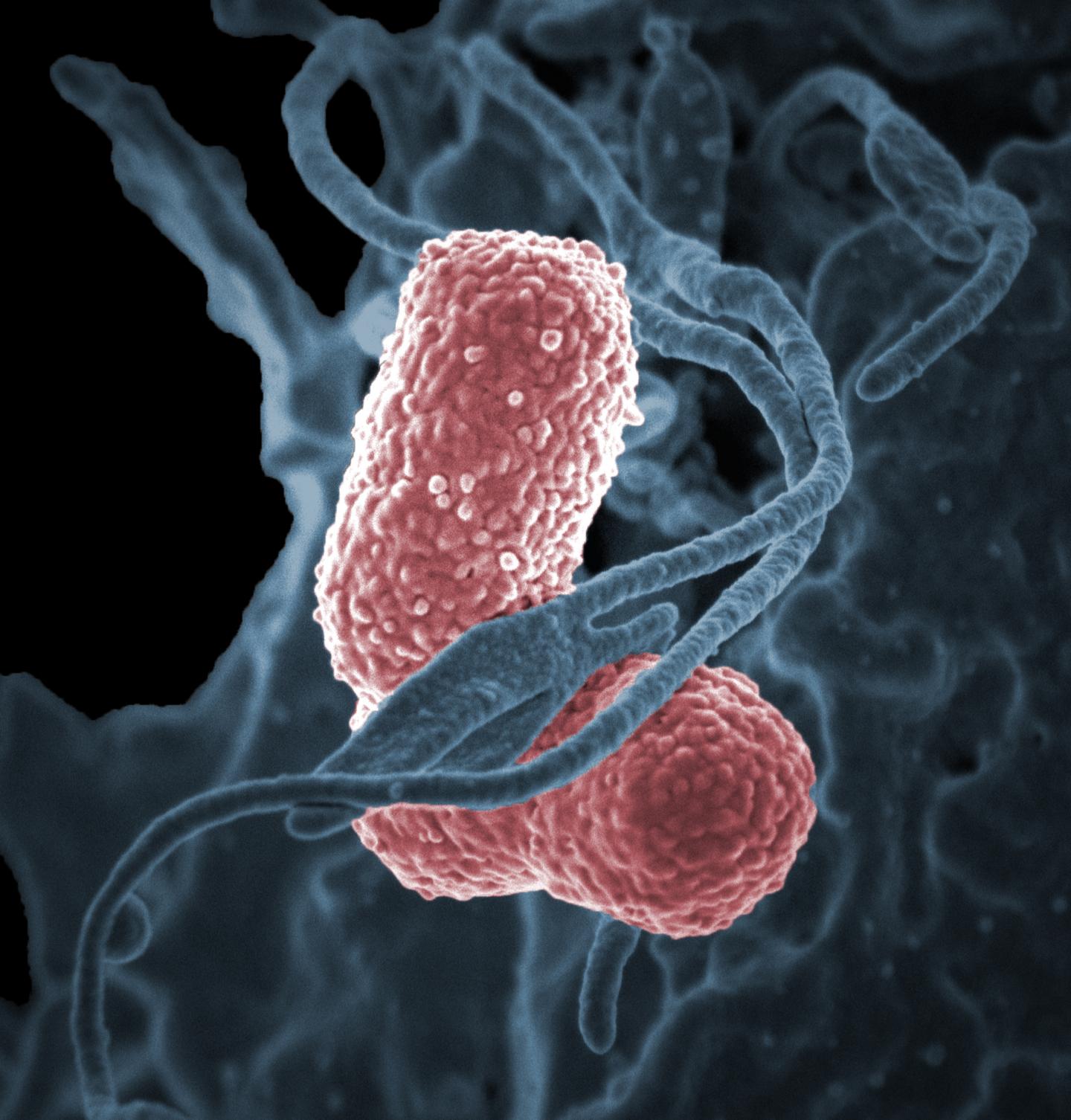
Credit: NIAID
Researchers are developing a promising alternative to antibiotic treatment for infections caused by Klebsiella pneumoniae bacteria resistant to carbapenem antibiotics. The approach uses antibodies to target the K. pneumoniae protective capsule polysaccharide, allowing immune system cells called neutrophils to attack and kill the bacteria. The early stage, in vitro research was conducted by scientists at NIAID's Rocky Mountain Laboratories and the New Jersey Medical School-Rutgers University.
Klebsiella bacteria cause about 10 percent of all hospital-acquired infections in the United States. A carbapenem-resistant K. pneumoniae strain known as multilocus sequence type 258 (ST258) is one of the antibiotic-resistant organisms labeled an urgent threat by the Centers for Disease Control and Prevention. ST258 is particularly concerning because it is resistant to most antibiotics. It is a significant cause of mortality among people with bloodstream infections.
The researchers first determined that the bacterial capsule prevents immune system neutrophils from ingesting and killing ST258. They then extracted capsule from the two most abundant capsule types of ST258 and used them to generate antibodies in rabbits. In cell culture experiments they found that one of the antibodies enhanced the ability of neutrophils to ingest and kill bacteria. These results are a "proof of concept" for a potential immunotherapy approach for treatment of multidrug-resistant K. pneumoniae infections, the authors write.
Next up, the researchers will test the therapeutic concept in mice. They also will compare immunization with purified capsule polysaccharide as a preventive approach (active immunization) versus using capsule-specific antibodies as a therapy (passive immunization). Ultimately, they hope either antibody treatment alone or in combination with antibiotics could greatly improve care for people with multidrug-resistant K. pneumoniae infections.
###
This research was supported in part by NIH funding awards R01AI090155 and R21AI117338.
ARTICLE: S Kobayashi et al. Antibody-mediated killing of carbapenem-resistant ST258 Klebsiella pneumoniae by human neutrophils. mBio DOI: 10.1128/mBio.00297-18 (2018).
WHO: Frank DeLeo, Ph.D., chief of NIAID's Laboratory of Bacteriology, and Scott Kobayashi, Ph.D., associate scientist in the Laboratory of Bacteriology, are available for comment.
CONTACT: To schedule interviews, please contact Ken Pekoc, (301) 402-1663, [email protected].
NIAID conducts and supports research–at NIH, throughout the United States, and worldwide–to study the causes of infectious and immune-mediated diseases, and to develop better means of preventing, diagnosing and treating these illnesses. News releases, fact sheets and other NIAID-related materials are available on the NIAID website.
About the National Institutes of Health (NIH): NIH, the nation's medical research agency, includes 27 Institutes and Centers and is a component of the U.S. Department of Health and Human Services. NIH is the primary federal agency conducting and supporting basic, clinical, and translational medical research, and is investigating the causes, treatments, and cures for both common and rare diseases. For more information about NIH and its programs, visit http://www.nih.gov/.
NIH…Turning Discovery Into Health®
Media Contact
Ken Pekoc
[email protected]
301-402-1663
@NIAIDNews
http://www.niaid.nih.gov
Original Source
https://www.niaid.nih.gov/news-events/nih-scientists-describe-potential-antibody-approach-treating-multidrug-resistant http://dx.doi.org/10.1128/mBio.00297-18





